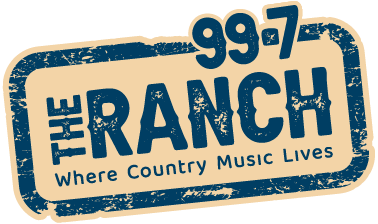Northern Lights Public Schools has the results for the Mental Health survey conducted in the spring.
Board Chair Karen Packard says this information will be incredibly valuable in identifying how to address the student’s needs.
Back in March, 70% of NLPS students completed a mental health survey focusing on four areas: Student Potential, Responding to Stress, Ability to Learn and Work, and Desire to Engage in Daily Activities.
The parents and guardians also had an opportunity to complete a survey in late March/early April. A total of 437 parents responded to questions about school atmosphere, school mental health services, student mental health experiences, services and supports, and parent learning opportunities.
Packard explained the surveys have reinforced what the staff, students, and parents were already aware of.
“Many of our students are struggling with aspects of their mental health and families are experiencing significant barriers to accessing services locally and in a timely manner. This is unacceptable. Families should not have to travel 7 to 8 hours for their child to see a psychiatrist or another mental health practitioner.”
NLPS has identified several highlights from the surveys completed by students and parents/guardians including:
- Over 96% of Kindergarten to Grade 2 students agreed that their teacher wants them to do their best
- Over 85% of Grade 7 to 12 students agree or strongly agree that they are hopeful about their future
- Students seem to be able to control their worrying and they do not feel afraid, as if something awful might happen
- Over 87% of students in grades 3 to 12 agreed or strongly agreed that they have a safe adult they can talk to at home
- Over 80% of parents agreed or strongly agreed that their child’s school is a welcoming place to be.
- 79% of parents indicated their child is hopeful about their future.
Several areas of concern have also been identified:
- Over 25% of students in grades 3 to 12 indicated that they did not know what to do to try and manage their feelings when they are upset. Only 60% of parents indicated that their child knows what they can do to try and handle their feelings when they are upset.
- Over 25% of students indicated they don’t feel that a lot of things about them are good.
- Approximately 20% of students in grades 3 to 12 students reported that in the two months prior to the survey, they struggled with feeling nervous, anxious or on edge, or with becoming easily annoyed or irritable.
- 37% of students in grades 3 to 12 either disagree or strongly disagree that they can talk to an adult at school about their problems. Only 54% of parents felt their child could talk to an adult at school about their problems.
- 29% of students in grades 3 to 12 either disagree or strongly disagree that they belong in their school community. Some parents and guardians also indicated that their children do not feel a sense of belonging at school and that they don’t feel students at their child’s school care about each other.
- Over 48% of students in grades 7 to 12 disagree or strongly disagree that they are engaged and interested in daily activities.
- Some parents indicated that they did not know if their child had opportunities to learn about mental health, is taught skills and knowledge to maintain mental health, or have access to mental health resources at school.
- Very few parents indicated they would feel comfortable explaining to others what mental health services or supports are available in their school or community.
- Almost half of the parents surveyed indicated they had tried to access outside services and supports since 2020, including therapists (64%), psychologists (52%), and psychiatrists (32%)
- Parents indicated the greatest barriers to accessing supports for their children are that the services aren’t available locally (50%), long waiting lists (51%) and cost (37%).
The division and schools are now working to identify the next steps to address the areas of concern. The Three-Year Education Plan is being updated to incorporate strategies to help with the issues found in the survey.
In addition, the Board of Trustees will be identifying strategies to advocate for mental health services for youth.
“The mental health of our students significantly impacts how our students are able to learn in our classrooms,” said Packard. “Students can’t excel academically if they aren’t able to regulate, and when there are significant numbers of students who can’t regulate, that can affect the learning environment and achievement of other students in the classroom as well.”
The Board will be reaching out to other leaders in local communities as well as organizations that provide mental health services to discuss ways they can work together to ensure youth in the community are getting the mental health services they need.
NLPS currently invests a significant amount of resources in mental health support and programming for students. Approximately $2 million of the funding the division receives for student supports is allocated to providing Student Advocacy Counsellors at each of the division’s schools. This is an initiative that has been in place for many years in NLPS. A recent review of the student mental health supports provided by NLPS showed that the division makes a much larger investment into mental health resources than most other school divisions of a similar size.
Students have access to Student Advocacy Counsellors as well as Wellness Coaches through the SFSK program which is being funded by Alberta Health Service. A second grant from AHS provides the division with funding to support the Community Helpers Program which provides middle and high school students with training to promote mental health in their schools and provide support to their peers.
The division’s current Mental Health and Wellness Plan is available on the division’s website.
The division would also like to thank all of the students, parents, and guardians who participated in the Mental Health survey this spring.




